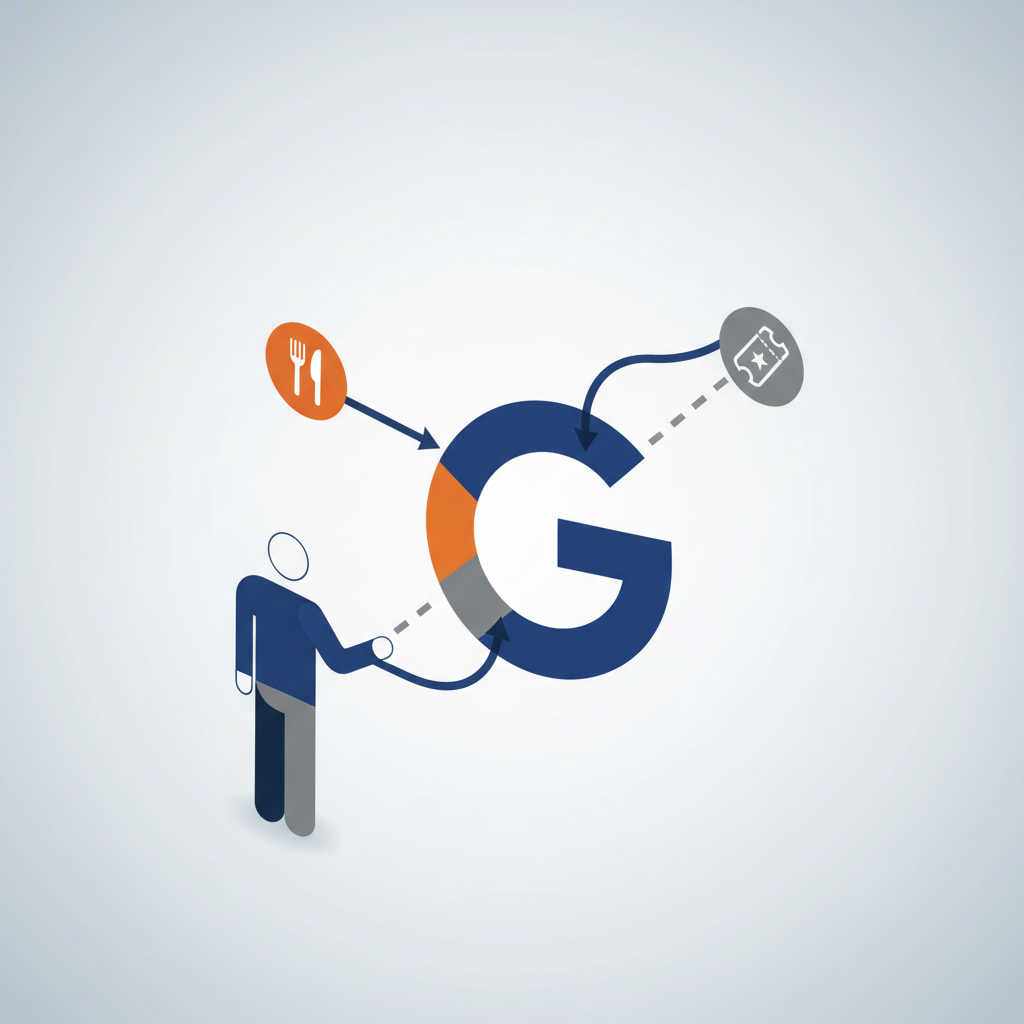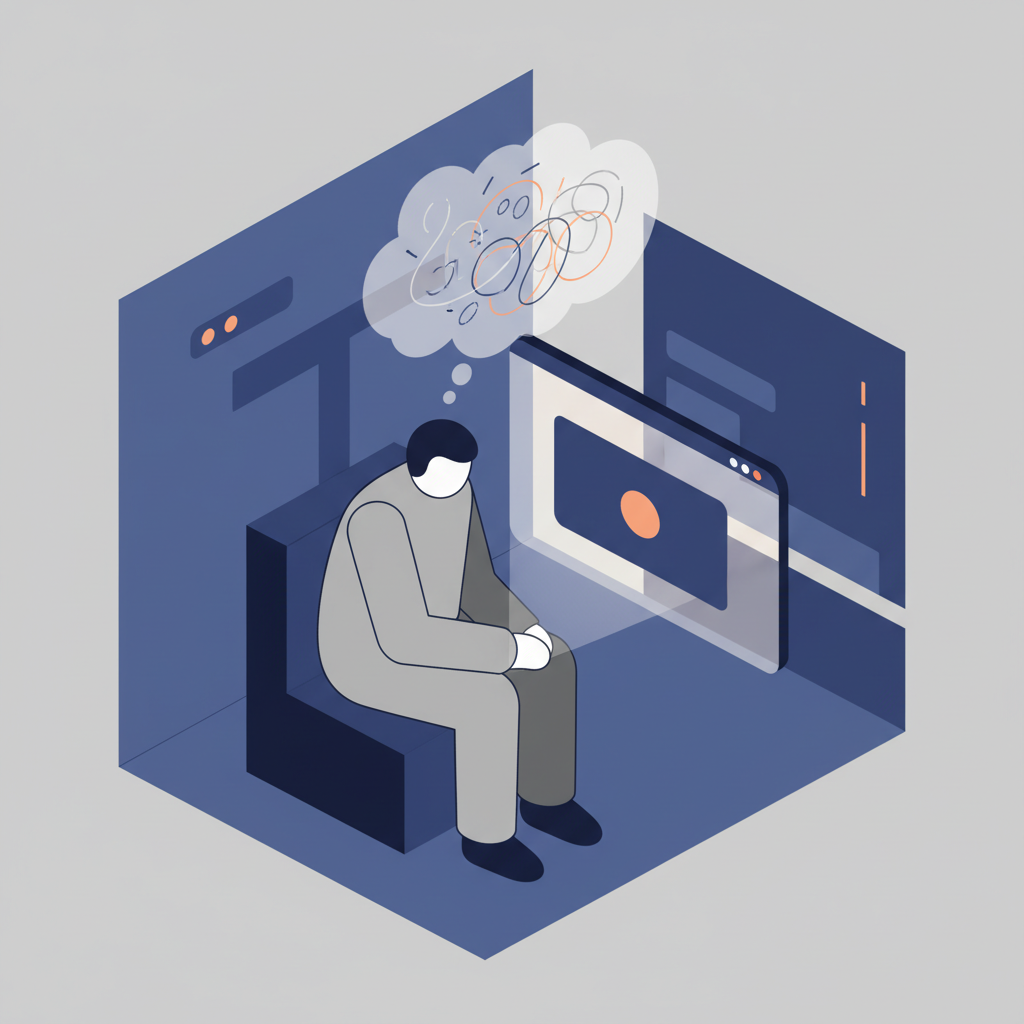The Automation of Choice: Google's Agentic Booking and the Collapse of Consumer Discretion

Google is pitching AI Mode as pure convenience: you tell it what you want and it takes care of the bookings for dinner, a haircut, or concert tickets; no more fiddling with dates, times, or confirmation screens. The promise is smooth and frictionless. In reality, the process hinges on extracting patterns from your requests and turning them into concrete actions.
Think of the architecture first: Google isn’t just adding a feature; it’s positioning itself as a layer between you and the places you patronize. Before, when you booked a restaurant, you went to OpenTable or you called directly. You’d see options, weigh reviews, peek at menus, and make a choice. That friction felt cognitive—and it was yours to bear. Now Google sits in the middle, processing your request through its models, querying partner databases, and returning a result. The user experiences seamlessness. What you don’t see is which paths the algorithm chose to explore, which partners it talked to first, and what criteria it prioritized when several options existed.

This is where incentive alignment starts to fracture. Google says its goal is to help you book, but the real optimization problem is different. The company benefits when you stay inside its ecosystem, when it collects data about your preferences and booking habits, and when transactions that used to happen on competing platforms shift into Google's own channel. Those goals don't have to clash with serving you well; in practice they often do.
Think about what actually gets optimized when the system makes the decision. Is Google aiming for the best restaurant for you, or for the one that has struck a favorable rev-share deal with Google? Is it optimizing for the ticket vendor with the lowest fees, or for the vendor that integrates most deeply with Google's systems and thus provides the richest data feed? You never truly know, because the decision happens in a black box. The algorithm returns a single result, maybe three if you ask nicely, and that appearance of choice hides the absence of real optionality.
Google will argue that quality matters, that a poorly ranked booking harms the user and, therefore, Google's reputation. That's technically true. But the pressure on Google's engineers isn't simply to rank well; it's about monetization, collecting data, and locking user behavior in. Those pressures align with quality only by chance. When they diverge, the algorithm ends up serving the business model first.

Second-order effects are worth noting. First, user agency withers. Booking used to involve shopping around, weighing trade-offs and exercising judgment. Now it often means typing a query and taking whatever the algorithm returns. Over time, people get used to this passivity. They stop sharpening the heuristics and preferences that come from comparing options. They lose the ability to notice when the algorithm nudges them toward mediocre choices because of partnership deals rather than genuine quality.
Second, the data that used to be spread across many platforms now concentrates at Google. Every booking query, every preference you share with the AI, and every option you pass on gets logged. The data is structured, actionable, and proprietary. Google uses it to train better models, to personalize ads, and to understand your constraints and desires at a level of detail that would have been impossible when your booking history was spread across a dozen platforms. This is valuable. Valuable to Google. Users tend to believe the value flows in both directions because the service is marginally more convenient.
Third, market power keeps piling up. If Google becomes the default channel for event bookings, independent ticketing platforms or regional restaurant reservation systems will have a harder time reaching customers. They’d need to integrate with Google's APIs, accept Google's data practices, and negotiate with Google's partnership team from a position of weakness. Smaller players get squeezed out. The network begins to look less like a bustling marketplace and more like a hierarchy, with Google sitting at the very top.

There's a counterargument worth addressing. Some people say that having an aggregator is a win: filtering through OpenTable, Ticketmaster, and a dozen smaller sites is tiring, and Google's consolidation eases the mental load. Fair enough. Aggregation has value. But the benefits aren't shared equally. You save time, sure, yet Google gains data and negotiating leverage. In the end, users trade a bit of agency for convenience, and because the swap happens quietly, many don't realize what they gave up.
Transparency about the choice sits at the center of this design question. If Google were to explain that it checked five restaurants, ranked them by clear criteria, and returned one because it has a revenue-sharing deal with us, then users could at least decide whether to accept that trade. But that would require Google to disclose its incentives, which assumes people can tolerate knowing they’re being optimized for rather than simply served. Most platforms don’t. Opacity isn’t a bug; it’s by design.
Google’s setup is clever in the way it pulls value from a transaction without signaling that it’s doing so. It makes things easier for users while quietly concentrating power at the top. It pushes the burden of choosing onto algorithms and then shields those algorithms by keeping them opaque. Users feel a smoother, less friction-filled experience in the moment. Meanwhile, the market edges toward monopoly. The difference matters, and it sticks largely because one side is visible and the other stays hidden.

Choosing to use this system isn’t necessarily wrong if you value the convenience. The key is to be precise about what you’re trading, not just your time but the shape of your own agency. You’re outsourcing more than the mechanical task of booking; you’re outsourcing the cognitive work of weighing options. Over time, that atrophy compounds. The algorithm learns to predict your preferences not because it truly knows you, but because you’ve stopped exercising those choices in any meaningful way.
Ultimately, the real test arrives when the system is so embedded that opting out starts to feel costly. Direct calls to a restaurant begin to feel like swimming upstream. Booking through anything other than Google's AI starts to look inefficient. By then, the lock-in is structural, not just behavioral. Google will have automated not only the transaction but also our willingness to imagine alternatives. And that is the architecture worth mapping.

Comments ()